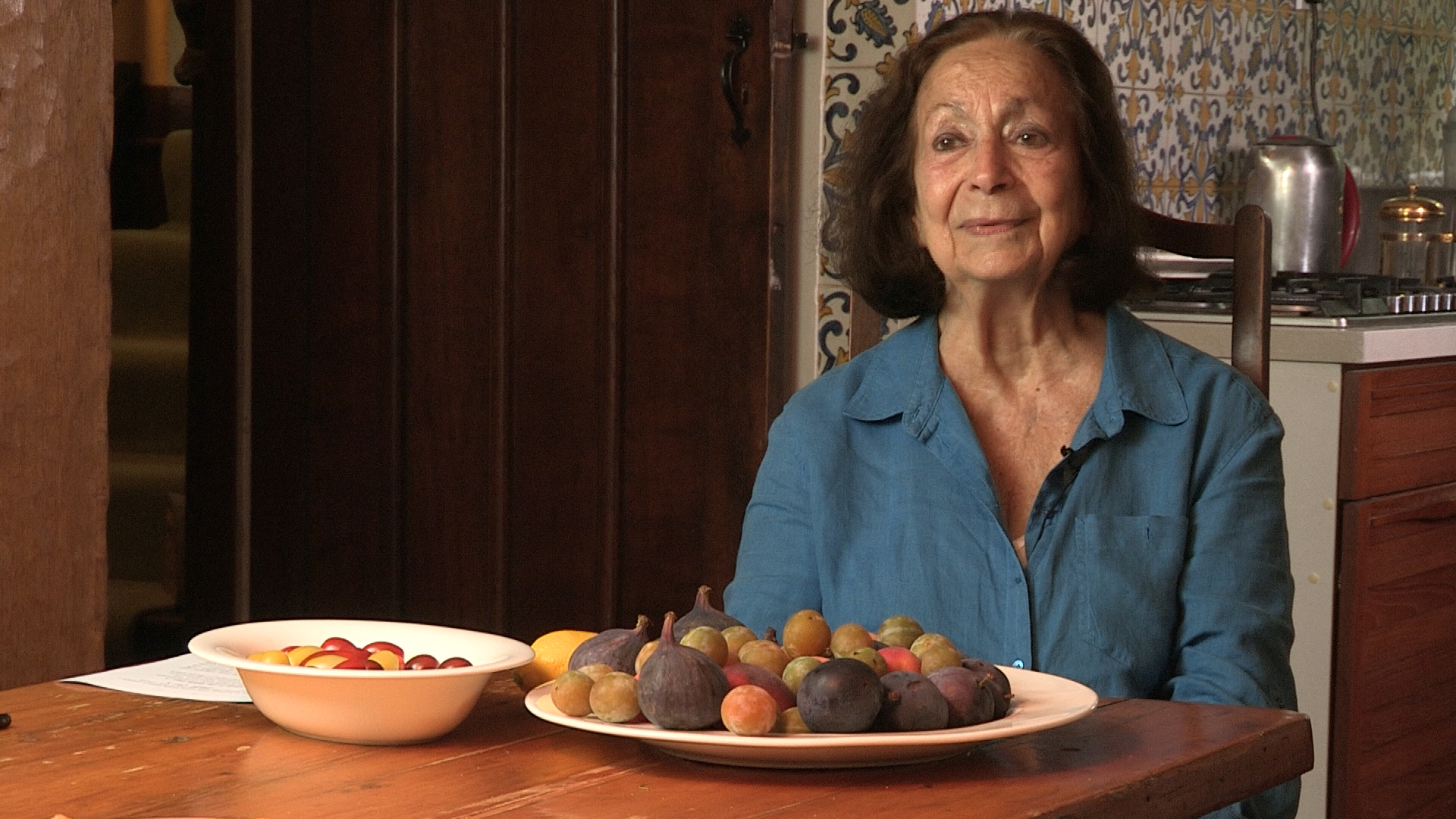NEXT STORY

Women in cookery schools
RELATED STORIES

NEXT STORY

Women in cookery schools
RELATED STORIES


|
Views | Duration | |
|---|---|---|---|
| 141. The festival of regional foods in Morocco | 04:02 | ||
| 142. The dadas of Morocco | 04:04 | ||
| 143. Women in cookery schools | 03:29 | ||
| 144. The grand dinner in Tétouan | 02:44 | ||
| 145. The Jews of Morocco | 02:43 | ||
| 146. Cooking means happiness | 01:53 | ||
| 147. My attitude makes me who I am | 1 | 01:33 | |
| 148. My motivation to do my work | 02:06 | ||
| 149. Things that funded my life | 05:06 | ||
| 150. Slovenian nannies in Egypt | 1 | 03:08 |


In those hotels now they did home cooking. Because when I first went, the very first time I think, hotels did not do Moroccan food. They did French cuisine. And you could get Moroccan food in the streets, there was street food. And vendors who cooked it, but you couldn't get it. But you could get it only in homes. And Moroccans didn't go to restaurants. There was no tradition of going to restaurants. They cooked at home and entertained each other. Entertaining was big thing for people who could afford it. Now, there are... all the hotels now do the kind of cooking that they cooked at home. So, whereas in Turkey, they had chefs that were trained in the style of the palace, they were trained in cookery schools for men only. In Morocco, all the chefs are women only. And men did not enter the kitchen. It was only women. Women were home cooks who became cooks in kitchen, in professional kitchens. And they were mainly black. And the story of these women... they are called the dadas, who have the secrets of Moroccan haute cuisine. Because they had been there, they had come as slaves. When Sudan was part of the Moroccan Empire they had been brought as slaves. The men as soldiers and guards, but the women to work for families as maids. As cooks. And so, until quite recently there was a kind of bondage still, for these women. Not anymore, but when I went and I did BBC television series, the women who cooked Moroccan food was black. And she could not read or write. And she was frightened. And the director then, of her programme – there were two directors – was angry with her all the time and shouted at her in French. She didn't even know French. To put the lid away because she was cooking for television. And the director was trying to tell her things and she'd lost her patience with her, and the woman was so frightened. And looked frightened. And because she was a dada. Who didn't know how to read or write. Didn't understand what was going on. But now they do, I imagine.
Claudia Roden (b. 1936) is an Egyptian-born British cookbook writer and cultural anthropologist of Sephardi/Mizrahi descent. She is best known as the author of Middle Eastern cookbooks including A Book of Middle Eastern Food, The New Book of Middle Eastern Food and The Book of Jewish Food.
Title: The dadas of Morocco
Listeners: Nelly Wolman
Claudia Roden talking to her granddaughter Nelly Wolman about her life in food.
Tags: Morocco
Duration: 4 minutes, 4 seconds
Date story recorded: September 2022
Date story went live: 04 December 2023